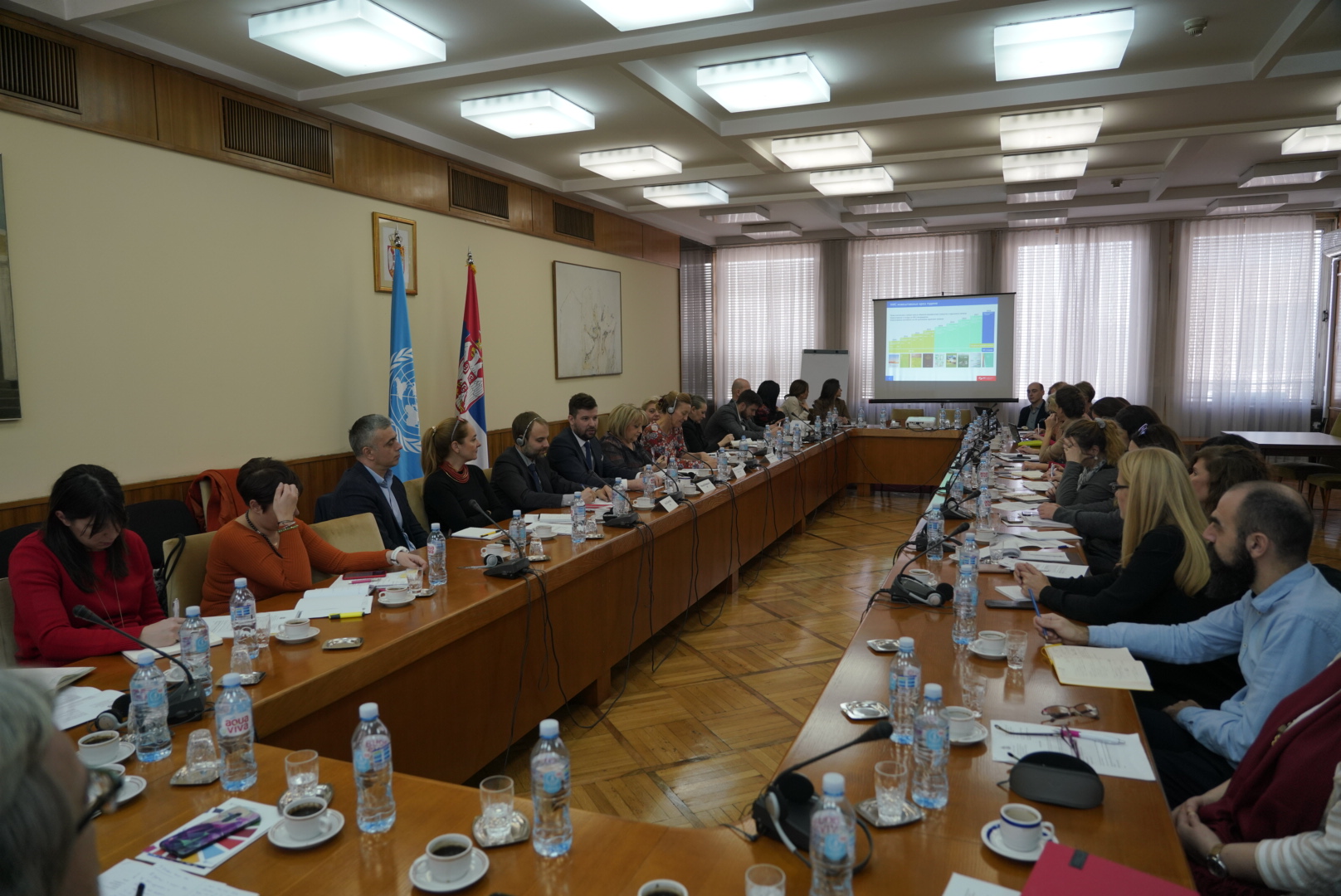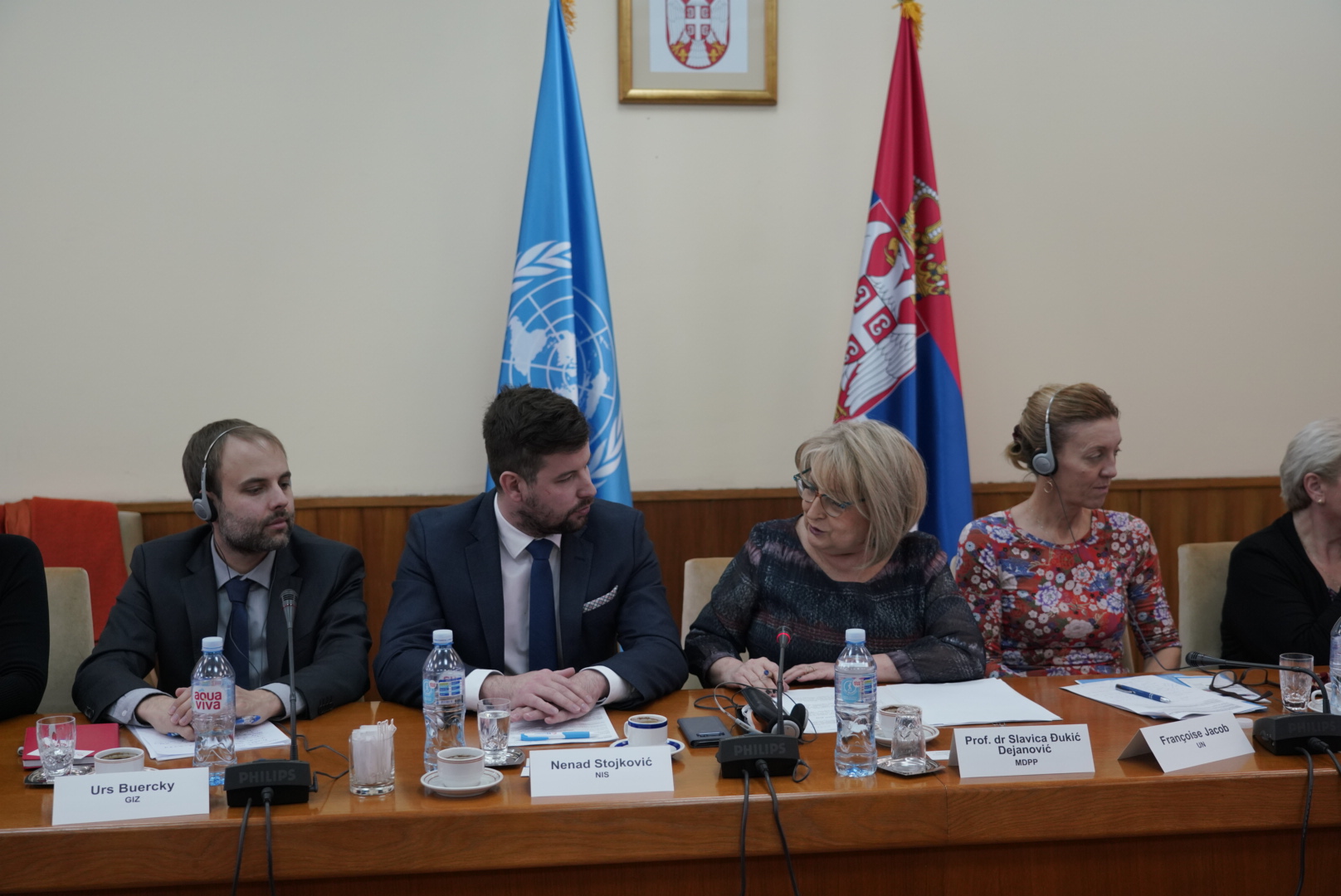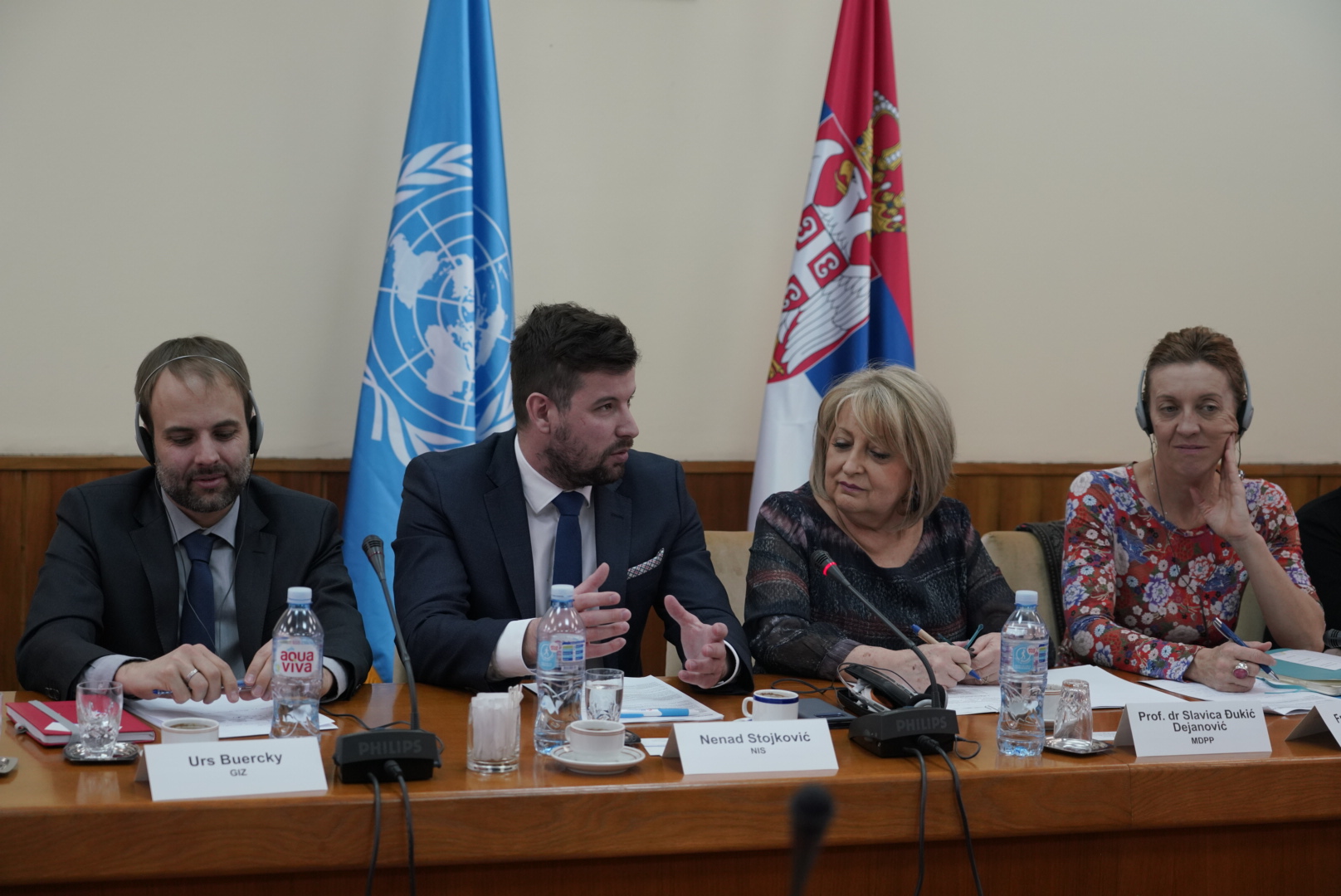It is possible to simultaneously operate responsibly towards society and be a profitable company – NIS has confirmed at a session of the Interagency Task Force for Implementing the United Nations Agenda for Sustainable Development by 2030. At this session, the Petroleum Industry of Serbia (NIS) was cited as an example of good practice in achieving the goals of sustainable development of companies in the private sector.

Speaking about NIS’ Sustainable Development, Nenad Stojković, Sustainable Development Manager, underlined that those principles were deeply embedded in all business processes and that NIS was the first company in Serbia to present a verified report on sustainable development to the public.
„Nine years ago, we started with the practice of Sustainable Development Reporting that we prepare following the GRI standards. Our report is compatible with the UN Sustainable Development Goals, and we recognize as many as 12 of the 17 UN Sustainable Development Goals in the company’s operations,“ Stojkovic said.

This compatibility, among other things, is reflected in the care for the local community, employees and young people, investments in environmental protection and renewable energy sources, gender equality, etc. Over the past 10 years, NIS has invested around 3.8 billion dinars in projects in local communities, and through the Energy of Knowledge programme, NIS cooperates with universities and high schools in the country and abroad, which contributes to higher quality education. NIS has invested over 13 billion dinars in environmental projects alone since 2009. The company’s responsible attitude is also reflected in the use of water resources from the least sensitive water intakes, and a large number of implemented renewable energy projects.
In line with the United Nations goals, the company also invests in employee health and education as a driving force, Stojkovic said, adding:
“A good attitude towards employees is a basic prerequisite for the company’s development. NIS has one of the best collective agreements around, student internship and repatriation programmes in Serbia as tools that we use to keep young people in Serbia and provide them with a motivating work environment. We also nurture the principle of equal opportunity for all employees in every respect. Accordingly, we are a signatory of seven United Nations principles for women’s empowerment and partnerships for equality with the Commissioner for Equality.”

At the seventh session of the Interagency Task Force, held at the Palace of Serbia, the participants analysed the activities to date and the next steps regarding the implementation of the Agenda. Government Minister Slavica Djukić Dejanović, Chair of the Interagency Task Force, welcomed the session participants and underlined the importance of cooperation at all levels in achieving sustainable development goals. Francoise Jacob, the UN Resident Coordinator in Serbia, announced that the UN team in Serbia would continue to be committed to working together with all relevant actors and at all levels to further advance the 2030 Agenda and improve living conditions for all people in Serbia. Urs Burki, the representative of the German organization for international cooperation, GIZ presented the activities and importance of regional meetings.